Green transformation is becoming a must if businesses want to survive and participate in the global supply chain. However, this journey is not easy, especially for small and medium enterprises (SMEs).
Many businesses are afraid that they do not have enough financial capacity to apply clean technology, improve processes or change production models towards low emissions. Meanwhile, technical standards, green certificates, emission measurement and reporting requirements are quite new and difficult to access for most businesses.
Many businesses also shared that they have difficulty accessing green capital sources. Lack of information, lack of appropriate mechanisms and lack of synchronous support from financial institutions are existing barriers.
Small businesses still see green transformation as “big company business”
Sharing with Dan Tri newspaper reporter, Mr. Dinh Hong Ky - Chairman of the Ho Chi Minh City Green Business Association - commented that green transformation is no longer a matter of ethics or voluntary goodwill of businesses, but has become a clear "technical barrier" in international trade.
The online discussion series "Talk GreenBiz - Green Growth Compass" is organized by Dan Tri newspaper in collaboration with the Green Future Fund (under Vingroup Corporation).
The aim of the chain is to contribute to promoting green journeys in daily life, raising community awareness and calling on each individual to take action today to protect the environment for future generations.
According to him, major markets such as the European Union (EU), the US, Japan, South Korea... are applying a series of strict regulations such as carbon tax, environmental certification, traceability requirements, recycling and emission standards. "Enterprises that fail to meet these will be eliminated from the global supply chain - no exceptions and no negotiations," Mr. Ky emphasized.
However, he admitted that currently only less than 20% of Vietnamese enterprises are fully aware of the mandatory nature of this trend. Many enterprises, especially small enterprises, still consider green transformation as "a big company's job". Even with seemingly simple products such as T-shirts, screws or rice, if they want to export, enterprises still have to comply with international green standards.

Many small business owners still think that green conversion is a "glamorous" activity, expensive and difficult to make a profit (Photo: FreePik).
In fact, many FDI enterprises and large corporations have proactively invested in environmental control, digitized processes, applied circular economic models and participated in ESG initiatives or Net Zero commitments. Meanwhile, the majority of small and medium enterprises - accounting for over 90% of the total number of enterprises in Vietnam - are still in the early stages of awareness, or do not consider this a mandatory requirement.
Mr. Ky said that many small business owners still think that green conversion is a "glamorous" activity, expensive and difficult to make profit. However, according to him, that is a misconception. He shared that he understands and sympathizes with these concerns, because many businesses really lack information, do not have enough resources and do not have a suitable support ecosystem.
Regarding the biggest barriers, Mr. Ky pointed out three main reasons. First, incorrect perception, many businesses still see green transformation as a form of “environmental charity” instead of a survival strategy.
Second, there is a lack of resources both financially and technologically, while green solutions that meet international standards often require high investment costs. Third, there is a lack of a synchronous support mechanism from policy, experts, technology to the green banking system, making businesses confused about where to start.
With more than 10 years of experience studying and working in the US and 2 years working with small and medium enterprises, Mr. Hoang Quoc Bao, Executive Director of SPACE ASEAN, Southern Arkansas University (USA) believes that enterprises play a key role in the green transition of a country.
" World- renowned studies show that businesses in the energy sector emit nearly 75% of global greenhouse gases, not to mention businesses in other sectors. Therefore, a country's green transformation must start with businesses," he emphasized.
According to Mr. Bao, in recent times, the Vietnamese government has done a relatively good job of encouraging businesses to be aware of green transformation. However, Vietnamese businesses in general are facing a number of obstacles.
The first obstacle is the reluctance to apply clean technology to production - which is still quite new, even in developed countries like the US and Europe. "The investment cost for these technologies is still quite high compared to the capacity of many Vietnamese enterprises. In addition, the transfer of technology for these technologies is still quite hesitant from developed countries," said Mr. Bao.
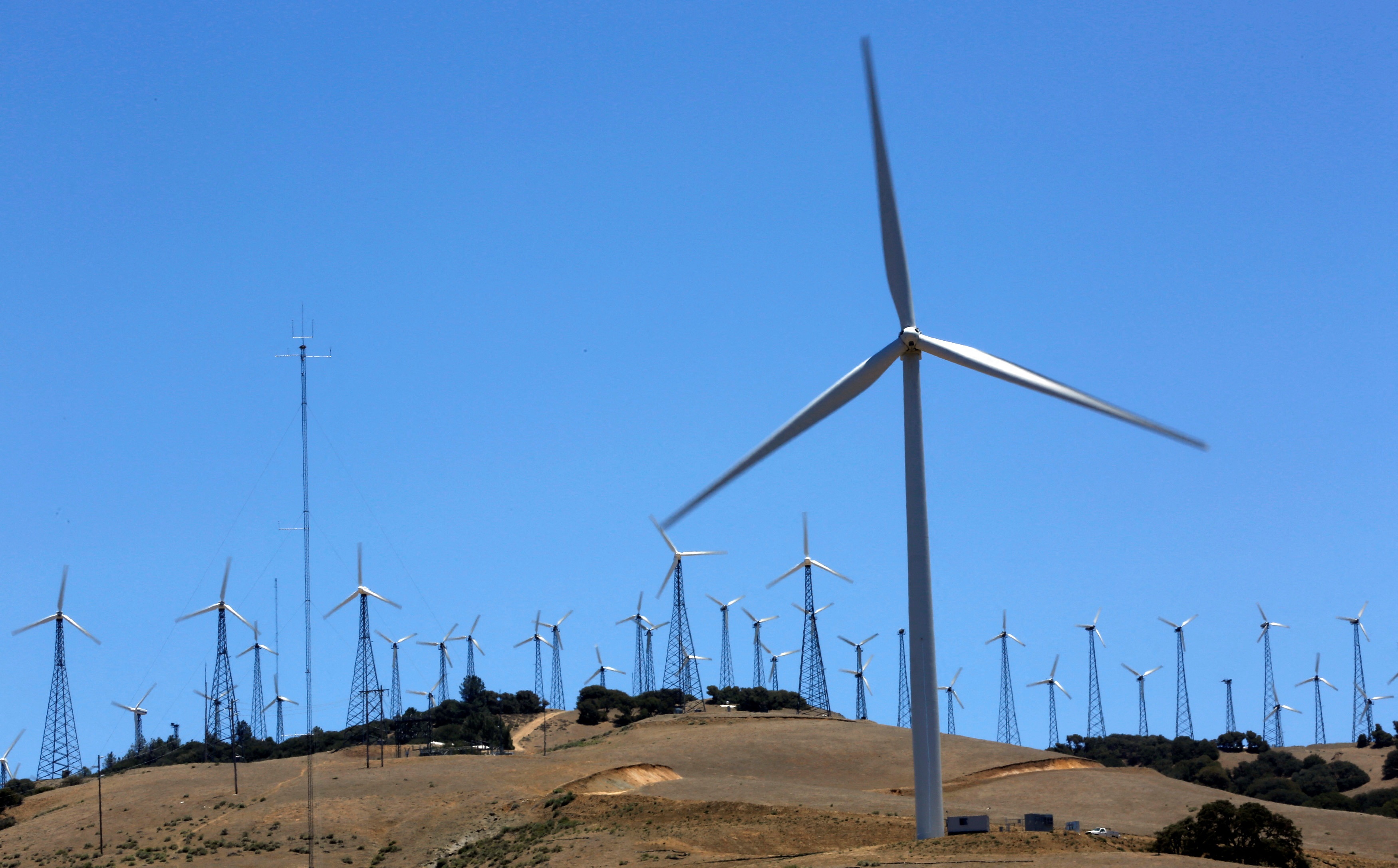
World-famous studies show that businesses in the energy sector emit nearly 75% of global greenhouse gases (Photo: Reuters).
Another challenge is access to green credit. Although this is an important resource to support businesses in their transformation, most Vietnamese businesses do not meet the requirements. “Many businesses have not demonstrated a clear roadmap and strategy for reducing emissions, making them ineligible for green loans,” he said.
In addition, to achieve green credit criteria, businesses must change many aspects of their business models. He believes that these activities can also negatively affect the business's income in the near future.
What breakthrough strategy is needed?
From the perspective of the Ho Chi Minh City Green Business Association, Mr. Dinh Hong Ky said that the breakthrough strategy should start from the root, which is to raise awareness and build trust. The Association is currently implementing practical training courses, providing accurate knowledge about ESG, spreading successful models and lessons learned to inspire.
“When businesses understand correctly, have confidence and see specific results, green transformation will no longer be a concern, but will become a driving force for development,” he said.
Another important point that Mr. Ky emphasized is that green transformation is not only a technical or technological problem, but also a change in leadership thinking. According to him, the first thing is that leaders must change their perspective on the responsibility and value of development.
According to him, such “awakening” is the foundation of transformation. When leaders understand that doing business right means doing business responsibly, green transformation is no longer a burden, but the right and sustainable path. To take this path, they also need to abandon the “shoulder-it-alone” mindset.

Mr. Dinh Hong Ky believes that if they seize the right moment, businesses can expand their markets, attract investment and enhance their reputation with global partners (Photo: HGBA).
The expert believes that green transformation is a long and complex journey, requiring collaboration with experts, a spirit of continuous learning and a willingness to change from within. Many small business leaders still think that “we are too small to go green” or “wait for others to do it first”.
But Mr. Ky affirmed that transformation only happens when the leader dares to open up and instill the green spirit in the team - not to cope, but to make real changes. "It is important to see green transformation as an opportunity. If you seize the right moment, businesses can expand their markets, attract investment and enhance their reputation with global partners," he said.
In fact, many small businesses in Vietnam have become partners of international corporations thanks to their determination to go green - a worthy reward for those who dare to go first.
"In short, business leaders do not need to know everything about green transformation, but must dare to green themselves. When thinking changes, technology and solutions will follow. And when the heart is "green", all business decisions will naturally move towards sustainability," Mr. Dinh Hong Ky emphasized.
To help Vietnamese businesses reduce emissions, Dr. Hoang Quoc Bao said that businesses should focus on changing behavior. Specifically, businesses can apply measures such as not using electricity or lights when not needed; drivers should limit rapid acceleration and sudden braking; and choose the shortest routes when transporting or traveling.
"Some companies in the US have organized classes to teach employees the above mentioned skills of efficient energy use," the expert shared.

Green transformation is not only a technical or technological problem, but also a change in leadership thinking (Photo: FreePik).
In addition, Mr. Bao said that businesses also need to change their business models. Recently, many researchers and business leaders have mentioned new low-carbon business models.
"For example, agricultural enterprises can apply sustainable agricultural models - using less chemical fertilizers, applying carbon-reducing farming techniques. Energy-intensive manufacturing enterprises can switch to using low-carbon fuels instead of fossil fuels," he cited.
International experience
On the management side, to support businesses in the green transformation process, Dr. Hoang Quoc Bao said that institutions and support from management agencies play an extremely important role in the green transformation process of businesses.
He cited the US government's many policies to support businesses in the green transition process. These policies include tax breaks for businesses using clean energy or creating conditions for businesses to easily access green credit sources.
"The US government also provides funds and supports research and development of clean technologies. Currently, the US is still leading the world in green and clean technology," said Mr. Bao.
From the perspective of an American scholar in the field of sustainable development, Dr. Bao believes that Vietnamese management agencies should have programs to support research and development of green and clean technologies and practices. These studies should focus on and specifically target the industrial and agricultural sectors in Vietnam.
"For example, the garden - pond - barn model is very effective in utilizing waste products. And as a result, greenhouse gas emissions are reduced. The intensive aquaculture model is also an effective practice in reducing emissions. This agricultural model uses less electricity and less feed, so it contributes a lot to reducing greenhouse gas emissions," the expert cited.

Dr. Hoang Quoc Bao believes that institutions and support from management agencies play an extremely important role in the green transformation process of businesses (Photo: Character provided).
According to him, the management agency should also complete a set of standards to guide banks and international green credit funds in Vietnam. These new policies will facilitate businesses, especially small and medium enterprises in Vietnam, to access domestic and international green capital sources.
“At the same time, the management agency should also have tax incentives (tax credits) for businesses that apply clean technologies to reduce emissions,” he proposed.
Another important factor is human resources. According to Mr. Bao, Vietnam currently lacks a team of real experts in the field of ESG and sustainable development to advise and support businesses in practicing according to international standards. "Green transformation is not only a requirement of social responsibility, but also a vital factor for businesses to compete and survive in large markets such as Europe or the US in the future," Mr. Bao emphasized.
Source: https://dantri.com.vn/kinh-doanh/lam-sao-de-chuyen-doi-xanh-khong-phai-la-ganh-nang-voi-doanh-nghiep-20250725151134205.htm



![[Photo] Prime Minister Pham Minh Chinh attends a conference to review one year of deploying forces to participate in protecting security and order at the grassroots level.](https://vphoto.vietnam.vn/thumb/1200x675/vietnam/resource/IMAGE/2025/11/12/1762957553775_dsc-2379-jpg.webp)

![[Photo] Highways passing through Dong Nai](https://vphoto.vietnam.vn/thumb/1200x675/vietnam/resource/IMAGE/2025/11/12/1762940149627_ndo_br_1-resize-5756-jpg.webp)










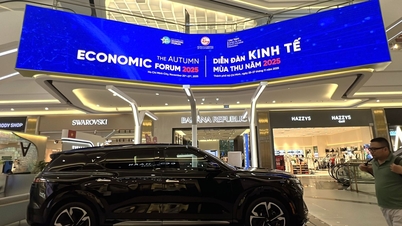






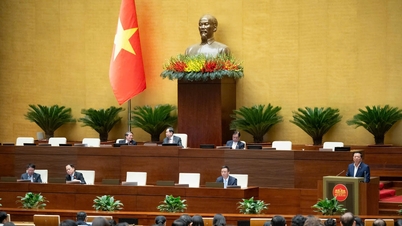
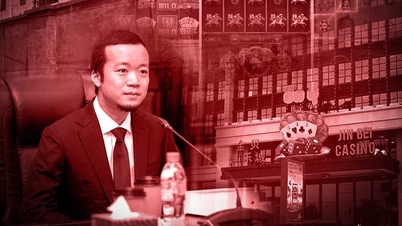
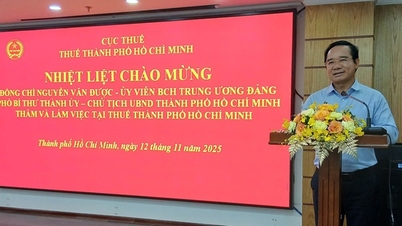













































































![Dong Nai OCOP transition: [Article 3] Linking tourism with OCOP product consumption](https://vphoto.vietnam.vn/thumb/402x226/vietnam/resource/IMAGE/2025/11/10/1762739199309_1324-2740-7_n-162543_981.jpeg)







Comment (0)